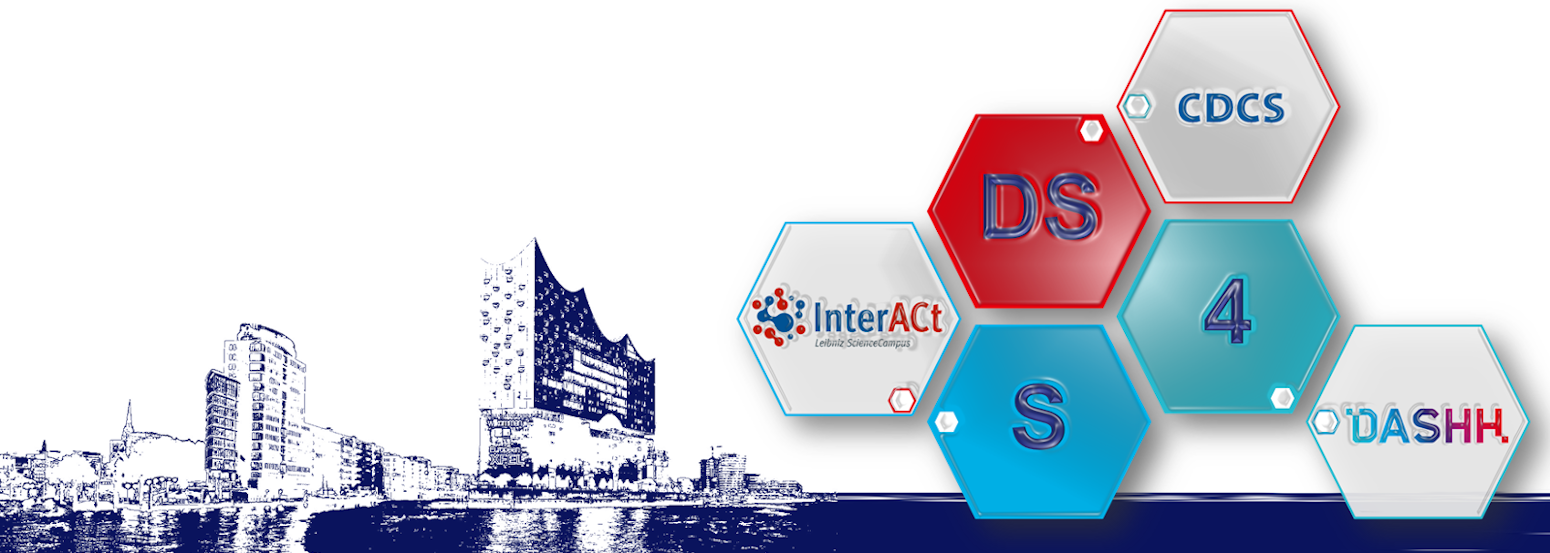DS4S - Data Science for Science

Wednesday, 30.3.2022 - 4 pm
Prof. Frank Steinicke will open the lecture Series DS4S
We, the graduate school Data Science in Hamburg - Helmholtz Graduate School for the Structure of Matter (DASHH), the Leibniz ScienceCampus InterACt (LSC InterACt) and the Center for Data and Computing in Natural Sciences (CDCS) are currently organizing a new series of networking events entitled Data Science for Science (DS4S) to enable exchange and networking across disciplines covered in the metropolitan region Hamburg. Therefore, we invite all interested researchers to join the biweekly events which are scheduled on Wednesdays at 4 pm.
Researchers from all partner institutions are invited to present different aspects of (envisioned) data science research and the corresponding application fields. The new series is an extension of our former Hamburg COVID-19 Series, which received a lot of attention and positive feedback, although having a much broader scope now. The event is currently organized online, but we hope that we can extend our series to an on-site event with talks and a subsequent networking event by June.
We are happy to announce that the welcome lecture of our Series "Data Science for Science" will be held by Prof. Frank Steinicke (Professor for Human-Computer Interaction, Department of Informatics, Universität Hamburg) on March 30th, 2022 at 4 pm. He will offer us a glimpse into applications of artificial intelligence and virtual reality. The talk will be focussed on the establishment of realistic humanoid AI-agents that enable multimodal communication. We are very much looking forward to his talk entitled "B(l)ending Realities – Human Imperfection as Key to the Ultimate Metaverse".
Abstract
"The fusion of mixed reality (MR) and artificial intelligence (AI) will revolutionize human-computer interaction, and will also allow scientists novel insights into exploring their data. Future MR/AI technologies will enable a Metaverse with seamless transitions, interactions and transformations between real and virtual artifacts along the reality-virtuality continuum indistinguishable from corresponding real-world interactions. Yet, todays immersive technology is still decades away from the ultimate display. However, imperfections of the human perceptual, cognitive and motor system can be exploited to bend reality in such a way that compelling immersive experiences can be achieved. In this talk, we will review some mixed reality illusions, which bring us closer to the ultimate b(l)ended reality."
If you want to contribute to this series and looking for collaborations with researchers from Hamburg concerning a specific method or application field, feel free to contact us via the contact button.
If you are interested in our talks and want to receive regular updates on this series, subscribe to our mailing list https://bit.ly/3hTStBa
We are especially grateful for the support of this series by the Joachim Herz Foundation.